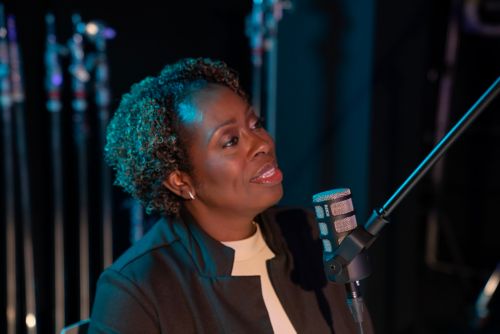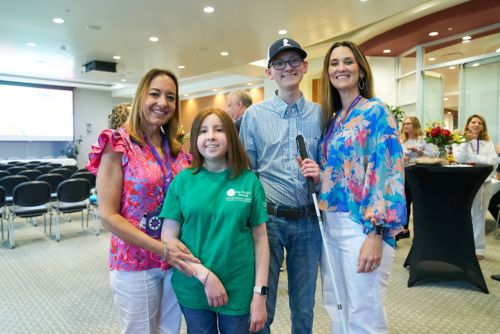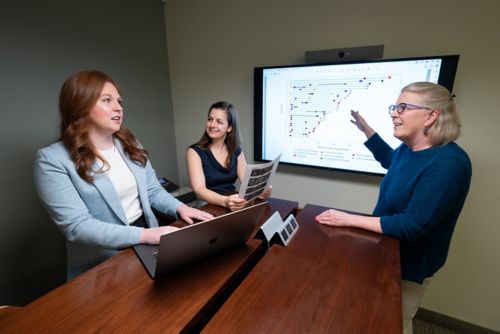In April 1993, I was diagnosed with chronic myeloid leukemia (CML), a rare childhood cancer. My doctors told my family I had only 3 months to live. We went to St. Jude Children’s Research Hospital, where I received chemotherapy and radiation. Luckily, my younger brother was a perfect match for a bone marrow transplant, which I had in July 1993. After 10 years, I was told I was cured, and my fear of relapse faded.
Twenty years later, I enrolled in the St. Jude LIFE study, which helps cancer survivors understand the long-term effects of treatment. I learned that I needed to take charge of my health. I started advocating for myself by sharing my survivorship care plan, that was provided by the St. Jude LIFE team, with my doctors.
I now live in Chicago and see doctors regularly to monitor my health. I have also sought help for post-traumatic stress disorder from my childhood cancer experience. While some of the news I have received has been tough, I am thankful to be alive and remain cancer-free.
I have learned that, as survivors, we must speak up for our health. I trust my instincts, ask questions, and listen to my body. With medical advances, cancer treatments have improved. And, with programs like St. Jude LIFE, we are assured continuous efforts to study long-term effects.
I now live life fully, crossing items off my bucket list, like bungee jumping in New Zealand, skydiving in Montauk, and paragliding in San Diego. I walk alongside other survivors, knowing I am not alone. If I can beat cancer, I can do anything. I am strong and living life on my terms.
Darshana Magan, childhood cancer survivor
Read more










